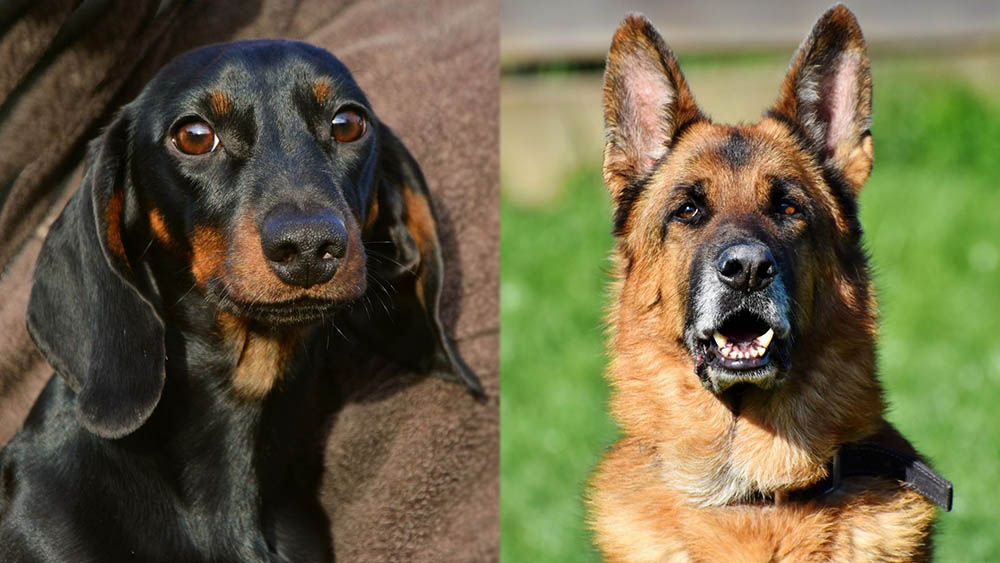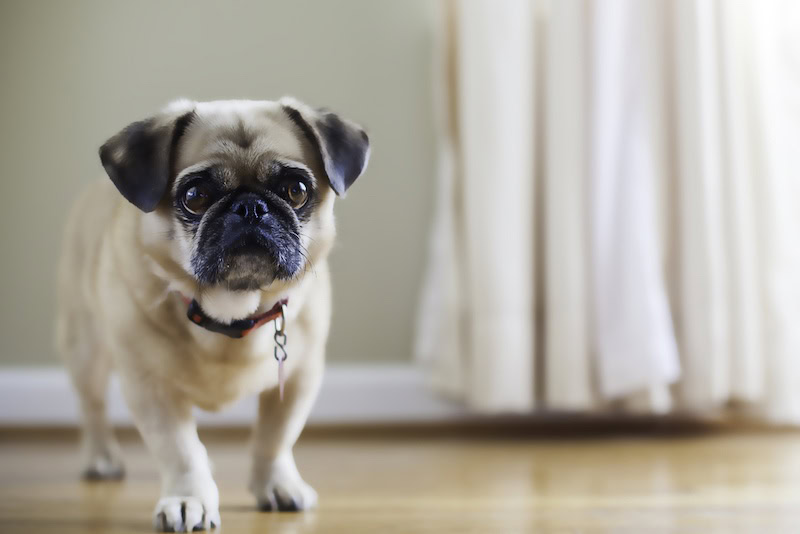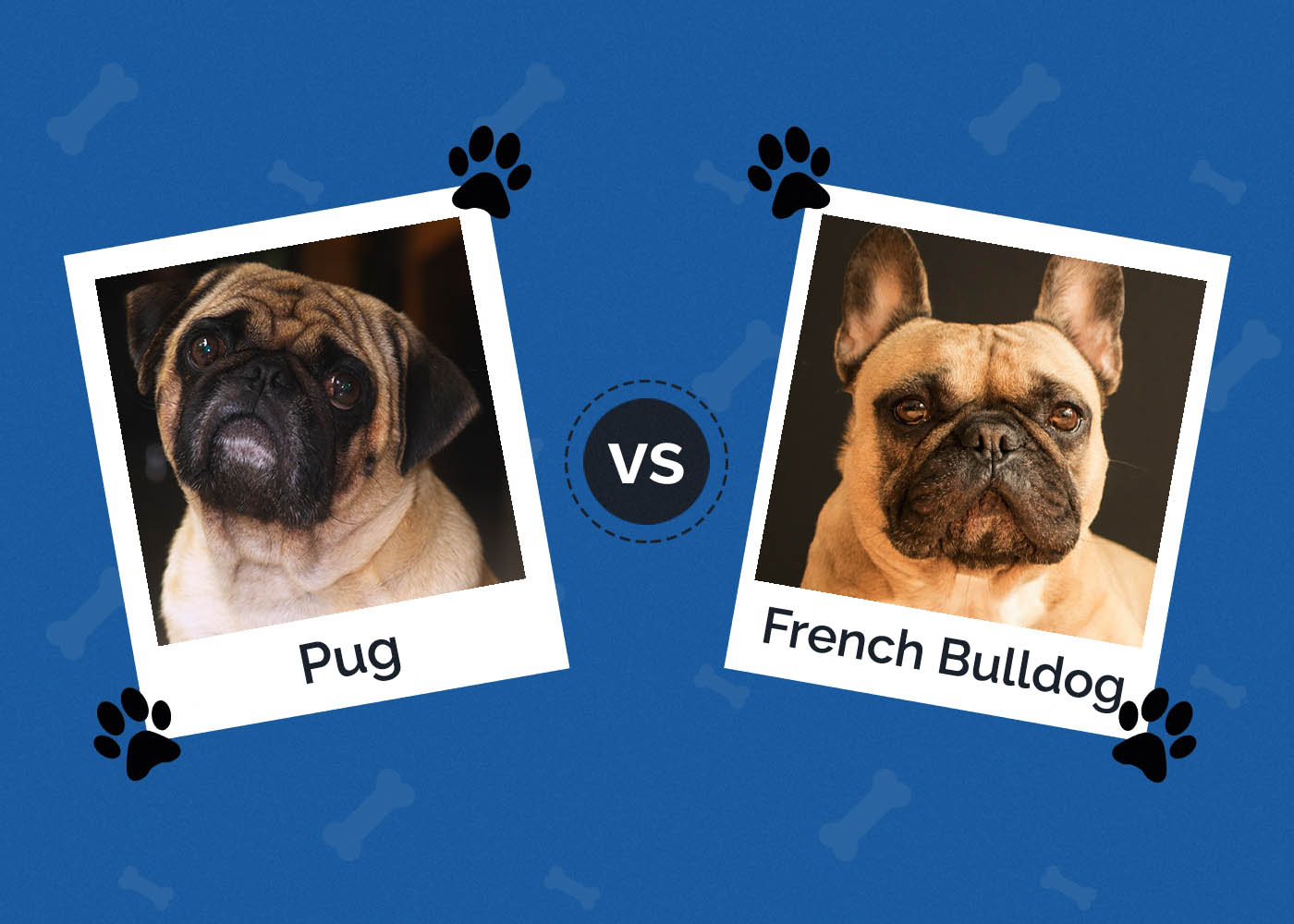Chonzer (Miniature Schnauzer & Bichon Frise Mix) Info, Pictures, Facts

Updated on
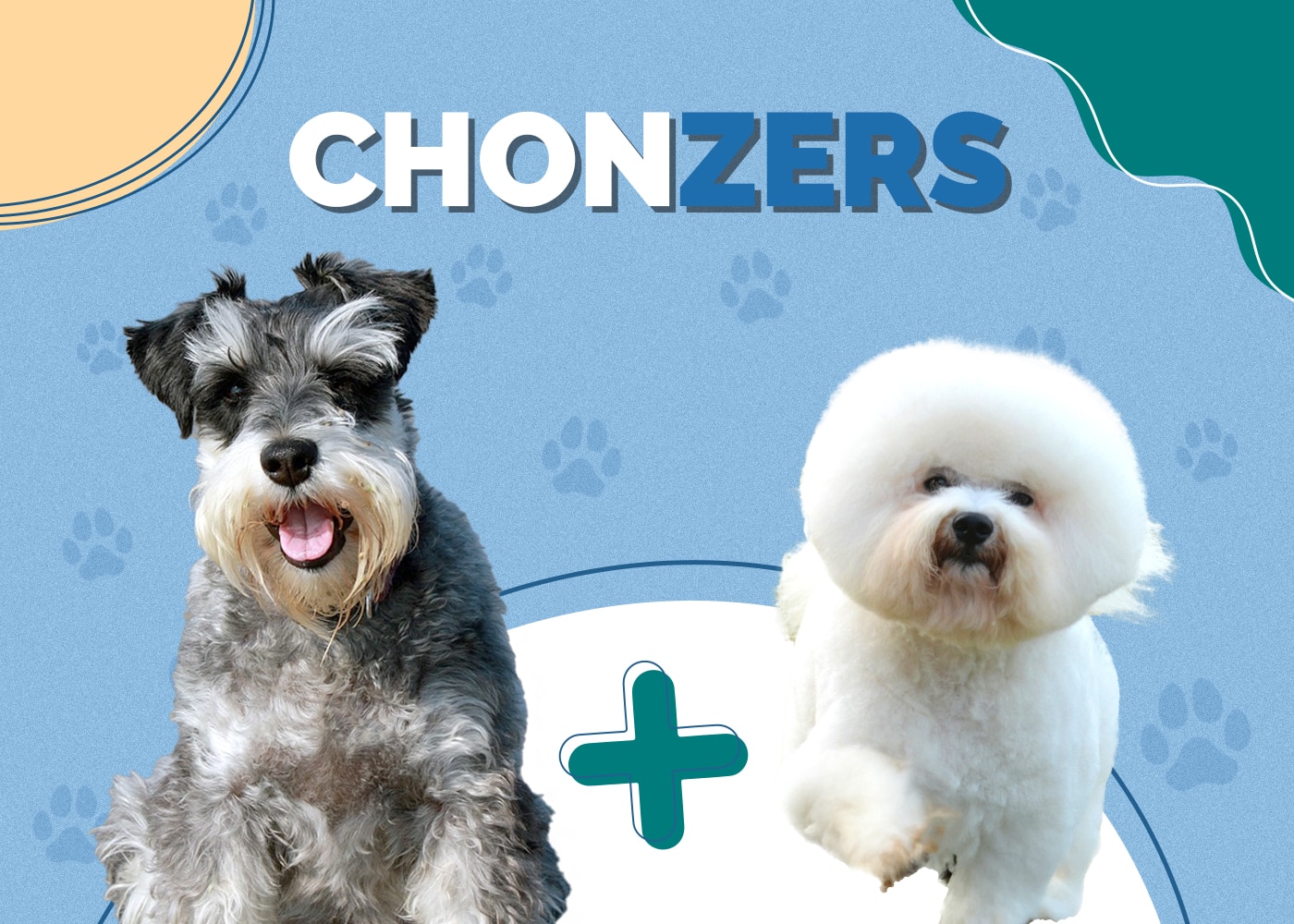
| Height: | 10 – 16 inches |
| Weight: | 25 – 35 pounds |
| Lifespan: | 10 – 13 years |
| Colors: | Salt and pepper, white and gray, brown, black, chocolate |
| Suitable for: | Anyone looking for a relatively low-maintenance, loving, loyal dog |
| Temperament: | Loyal, loving, independent, fairly active, relatively easy to train |
The Chonzer is a cross between a Miniature Schnauzer and Bichon Frise. As a cross, the exact characteristics of your dog will vary according to which parent breed is dominant. Generally, the Chonzer is a medium-sized dog with moderate exercise requirements that will shadow you throughout the day. They make good companions and mix well with children and other pets, but they do tend to bark a lot, like many smaller breeds.
The Miniature Schnauzer was bred for hunting rats and used as a farm dog, which is where the Chonzer gets its energy levels and playfulness. The Bichon Frise originates from the Bichon, which was used by the Spanish as a sailing dog, but is now a lap dog, giving the Chonzer its loving and attentive nature.
Because Chonzer’s are good listeners and like to please their owners, they can pick up commands and training quickly. However, poorly socialized Chonzers, like any dog, can become destructive and anti-social, so you should ensure that your puppy is trained early.
Chonzer Puppies
The Chonzer breed is a crossbreed, and despite its friendly and loving nature, it hasn’t gained as much popularity as other designer breeds. As such, these dogs can be found in the lower price range. Those with white fur are more common, while dark-colored Chonzers are rarer and can be costlier. If you’re considering adopting your pup, it can be hard to find a Chonzer. But feel free to can ask your local shelter or rescue for Schnauzer mixes that resemble the Chonzer.
These dogs are generally very loving and energetic. They tend to be easy to train and will enjoy lots of playtime with their families. Chonzer dogs are generally health, but make sure to talk with your vet regularly for any health and wellbeing recommendations they can give you.
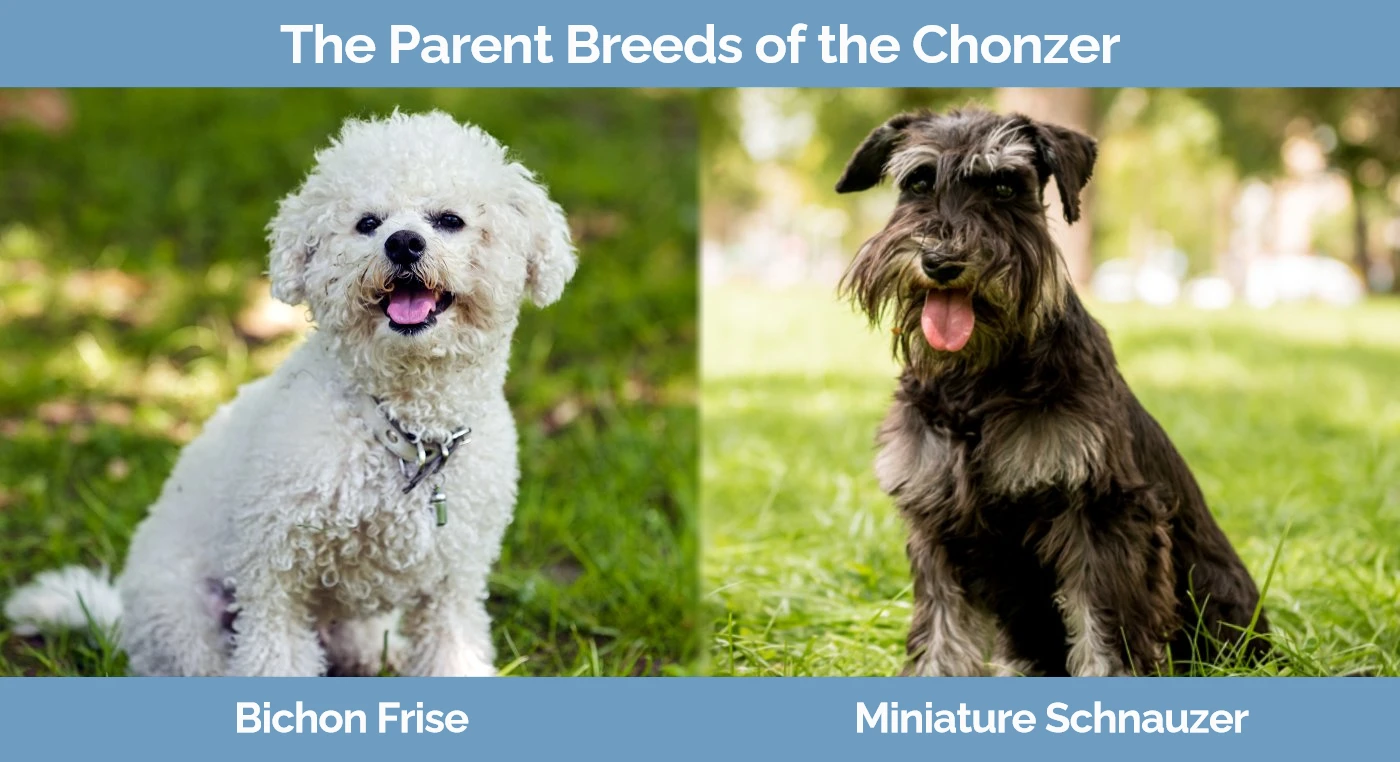
3 Little-Known Facts About the Chonzer
1. The Miniature Schnauzer Was One of the Most Popular Dogs in the US
Although it has fallen out of favor a little in recent years, the Miniature Schnauzer was once the third most popular breed in the US according to Kennel Club figures. Today, it is the 17th most popular breed but retains its popularity around the world and is the most popular of all the Schnauzer breeds.
2. The Schnauzer Is a Great All-Rounder
The Schnauzer was originally bred in Germany in the 14th or 15th centuries. Traders of the day needed a dog that would guard their carts while traveling and that would hunt rats and other rodents while at home. They have even been used as messengers during wartime (carrying messages to and from troops during a conflict), worked as Red Cross dogs, and have served as effective and popular police dogs around the world. Your Chonzer may be a crossbreed, but he still carries many of these traits with him.
3. “Bichon Frise’ Means “Curly Lap Dog”
The other parent breed of the Chonzer is the Bichon Frise. The name translates to mean “curly lap dog” referring to the breeds loose curly hair and its love of sitting on laps. Its early popularity meant that the Bichon was traded as a luxury good, not only displaying its popularity with owners but also explaining how the breed quickly made its way around the world. While the Chonzer gets its alert, energetic nature from the Schnauzer, it gets its love of relaxing on its owner’s knee from the Bichon lap dog.
Temperament & Intelligence of the Chonzer 🧠
The Chonzer is a typical lap dog in many respects. They crave attention not only from their owner but usually from visitors and strangers alike. Their pleasant temperament means that this isn’t usually a problem, while their alluring face means that they are as popular with others as they are with their owner. With good socialization, you should be able to easily mix your Chonzer with other dogs, pets in your own home, and children without any worry. However, without this socialization, the breed can become anti-social.
They do demand a lot of attention from their owners. This means that they will likely shadow you throughout the day and want to sit on your lap in the evening. They will also want the same from visitors to your home. Fortunately, they are hypoallergenic, so even those that are allergic to dogs can benefit from some time with this loving animal.
The breed is known for being highly intelligent, which is thanks to its Schnauzer parent breed. They take to training quickly, and their combination of intelligence and decent energy levels means that they are also highly suited to agility work. In fact, this can provide an effective way to provide exercise and keep your dog mentally challenged.
One thing that every potential owner should be aware of is the Chonzer’s propensity to bark. For quite a small breed, they have a big bark and aren’t afraid to use it. Again, this stems from the Schnauzer, which was used for guarding stock and livestock, and the Chonzer can make a very effective guard for your home by alerting you to visitors, but if you are looking for a quiet dog, the Chonzer is unlikely to be it.
Are These Dogs Good for Families? 🏡
The Chonzer is suitable for virtually any family or group and in any type of home. In fact, they are great companions for elderly people because they love attention and are very loyal, while also working as an effective guard dog. They are also muscular and surprisingly hardy for a smaller breed, which makes them perfect as a family pet to have around children. Even the most respectful children can get carried away when playing, but the Chonzer is usually happy to play rough and can do so without getting hurt or injured. Obviously, you should never encourage rough play between children and dogs, but if it does happen, this breed can cope.
They are also incredibly friendly dogs, which is another essential attribute for a family pet. However, you may need to watch your Chonzer around toys and snacks because they will always know where they are and how to get to them.
Does This Breed Get Along With Other Pets? 🐶 😽
As well as children, the Chonzer is a good choice of dog for families with other pets, although this obviously depends on several factors. They do descend from a rat-catching breed, so care must be taken around small animals. If you intend to introduce new pets later, you must give your dog plenty of socialization when young. Go down to the dog park, enroll in puppy training classes, and introduce them to understanding cats whenever possible. This will lay the groundwork for future meetings.
Things to Know When Owning a Chonzer:
The Chonzer makes a great all-round pet that likes some exercise but is equally happy sitting at home with their owner. It is a medium to small dog with only a few known health issues and has a good life expectancy, so they make an excellent companion for families and owners of all ages. Before buying or adopting a Chonzer, however, there are some things you should know.
Food & Diet Requirements 🦴
The Chonzer can range in size from small to medium, depending on whether the Schnauzer or Bichon Frise is the dominant breed. Adult dogs will require anywhere from 2 to 3 cups of good quality dog food every day, preferably with set mealtimes in the morning and in the evening. As with any dog breed, you must monitor and manage food levels to ensure that you do not overfeed the Chonzer.
Exercise 🐕
The Chonzer is an active dog and may have a reasonable amount of energy to burn off. They can adapt to life in an apartment but will require daily walks. Less active Chonzers will require a 30-minute walk every day, while more active dogs benefit from two walks of this length. If you do have a decent yard, they will be happy getting out and playing with their favorite toy, but remember that walking is a good way to ensure that your dog is well socialized. They will also enjoy the variety that comes from walking outside the home.
Training 🦮
The Chonzer is an intelligent breed with decent energy levels and a desire to please his owner. This means that they adapt well to training, but this is always easier when started at a young age.
You will need to be firm when necessary, but this does not mean aggressive or physical. Distractions can be a problem for this breed, so if you find that your puppy is distracted by activity going on around them, move somewhere quieter for the purposes of training.
Consistency is also extremely important. Your Chonzer will pick up habits quickly. Only by being consistent with your demands can you ensure that they pick up the right habits.
Intelligence in a dog can make training easier, but it can also lead to boredom. Mix your training sessions, try new training techniques, and aim for fairly short sessions to avoid your dog getting too bored.
Grooming ✂️
The Chonzer is also easy to care for and groom, compared to most other breeds. For a start, they are more “hypoallergenic” (no truly hypoallergenic dog exists, though) so brushing shouldn’t cause clouds of irritating hair, even for those with allergies.
When it comes to grooming, you can choose to keep your Chonzer’s fur short or leave it long. Matting isn’t usually a problem, but some owners choose to keep their dog’s coat shorter because it can start to look messy as it gets long.
Brush your dog’s teeth two or three times a week. You can brush every day if your dog is happy with it and you want to ensure they have healthy teeth.
You should also be prepared to wipe their ears and eyes to prevent gunk from building up and potentially causing an infection.
Nails should be clipped when they get too long. This is usually noticeable because they will make a clicking sound when walking on a hard surface. If you take your Chonzer on regular walks on concrete or another similarly hard terrain, you will not need to clip nails as often.
Health and Conditions ❤️
The Chonzer is also a generally healthy and hardy dog. They can suffer from common ailments, like hip dysplasia and hemophilia, but these are no more common in this breed than any other. They can also suffer from canine epilepsy.
The most common complaints about this breed are skin allergies, ear infections, and bladder stones. If your dog suffers from these regularly, consider upgrading to a premium dog food and cutting out some of the unhealthy treats he receives.
- Ear infections
- Skin allergies
- Bladder stones
- Epilepsy
- Von Willebrand disease
 Male vs. Female
Male vs. Female
Males and females of this breed are very similar, with their traits being governed primarily by which parent breed is dominant rather than gender.

Final Thoughts on the Chonzer
The Chonzer takes characteristics from both parent breeds. They have the energy and intelligence of a Miniature Schnauzer and the calm attentiveness of the Bichon Frise. They’re an ideal pet for almost any family, being good with children and other animals, and having only a few known major health concerns. While your Chonzer will require some daily exercise, their needs are not excessive, and they are also considered easy to train.
Appearance differs according to whether the Bichon or the Schnauzer parent is prominent, but Chonzers are considered easy to maintain and are as “hypoallergenic” as a dog can be. You can choose whether to keep your dog’s coat short or leave it to grow long, as this breed is not known for suffering matted and knotted fur. You will need to ensure that their eyes and ears are kept free from gunk, though, to help protect against infections.
See also:
Featured image credit: mariann72, Pixabay


 Male vs. Female
Male vs. Female